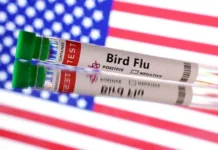The World Health Organisation (WHO) has issued a warning about the circulation of counterfeit diabetes drugs, a serious problem that has been affecting all regions of the world since 2022.
In a detailed statement, the WHO highlighted specific findings of counterfeit drugs in the United Kingdom, the United States, and Brazil, beginning in October 2023.
The primary drug of concern is Ozempic, which contains the active ingredient semaglutide. Ozempic is approved in the European Union for the treatment of type 2 diabetes and is widely prescribed for its effectiveness.
Alarmingly, the counterfeit version of Ozempic is almost indistinguishable from the genuine medication, making it difficult for patients and healthcare providers to detect the fake.
Because Ozempic also has appetite-suppressing properties, it is increasingly being prescribed for weight loss.
However, the WHO warned that counterfeit versions of this drug might not contain the correct amount of active ingredients, potentially leading to uncontrolled blood sugar levels in diabetic patients.

Additionally, the WHO noted that these counterfeit drugs might contain other active ingredients, which could pose significant health risks.
The WHO, as reported by NAN, urged doctors, pharmacists, regulatory authorities, and the general public to remain vigilant against counterfeit medications.
They emphasized that people should only purchase medicines with a prescription from reputable pharmacies and avoid buying medications online.
Furthermore, the WHO advised users to ensure that the dosage scale on insulin pens is displayed correctly, the labeling appears accurate, and there are no spelling mistakes on the packaging.




